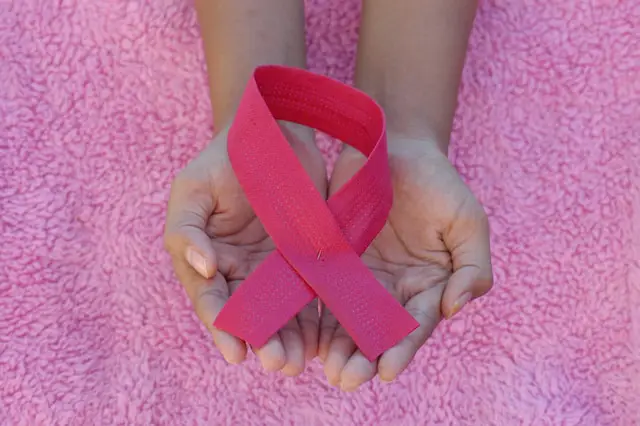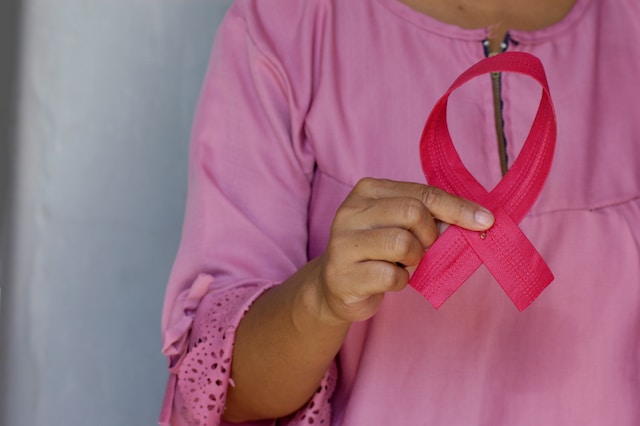Important Facts You Probably Didn’t Know about Case Studies on Breast Cancer

Breast cancer is one of the most common cancers among women, and it’s a scary diagnosis to receive. However, learning more about what we know about breast cancer – how it develops, who is affected by it the most, and its various treatments – can empower us to better protect ourselves and our loved ones.
In this blog post, we’ll explore some insightful facts about case studies from around the world on breast cancer that you might not know. From a professor in Australia researching rare forms of late-stage breast cancers to an NGO in Sweden making strides towards connecting survivors with their peers for support – read on to find out more!
Understanding the role of RAD 140 in case studies
As scientists continue to search for more effective treatment options for breast cancer, many are turning to alternative therapies and medications. One of these alternatives is RAD 140, a selective androgen receptor modulator (SARM) that has shown promising results in treating certain types of cancers.
As research progresses, RAD 140 is being studied in various case studies to determine its efficacy in treating breast cancer. Additionally, if you are looking to buy RAD 140 for research, you can find a lot of information online. Early results are promising, with some studies showing that RAD 140 can inhibit the growth of breast cancer cells and even induce cell death in certain types of tumors. While more research is needed, this could be a potential breakthrough in the fight against breast cancer.
Overview of breast cancer & the number of cases
Breast cancer is a serious health condition that affects millions of women across the world. This disease usually starts when abnormal cells grow out of control and form tumors in the breast tissue. Unfortunately, the United States is not immune to this disease, seeing an estimated 279,100 new cases of invasive breast cancer in women in 2020 alone.
That is a staggering number that highlights the need for more awareness and screening efforts to detect this disease at an early stage. While breast cancer does not discriminate against age or gender, it is crucial to understand the facts about this disease and take the necessary steps to prevent it. Together, we can combat breast cancer and ensure that every woman has the chance to live a healthy and fulfilling life.
What types of treatments are available
Breast cancer is a condition that affects many women around the world and can be a frightening diagnosis. Fortunately, there are many treatment options available to patients. The type of treatment recommended depends on a variety of factors such as the stage of cancer, the size and location of the tumor, and the patient’s overall health. Treatments may include surgery, radiation therapy, chemotherapy, targeted therapy, or hormone therapy.
Surgery involves removing the tumor and surrounding tissue, while radiation therapy uses high-energy X-rays to kill cancer cells. Chemotherapy, on the other hand, uses medication to kill cancer cells. Targeted therapy targets specific proteins or genes that contribute to the growth of cancer. Hormone therapy is another type of treatment that blocks hormones that promote the growth of breast cancer cells. It’s important to remember that every patient’s situation is unique, and their treatment plan will be tailored to their specific case.
An introduction to case studies and their purpose
Have you ever heard of a case study? A case study involves conducting research on a particular situation, person, or group and analyzing the data to better understand the issue at hand. It is a valuable tool used by businesses, healthcare professionals, and researchers to identify problems, develop solutions, and make informed decisions. The purpose of a case study is to provide a detailed and in-depth examination of a specific subject and to uncover insights that can be used to serve larger populations or issues.
By delving into the nuances of a particular case, experts can extract valuable information and apply it to similar cases in the future. Whether you are a student, business owner, or healthcare provider, understanding the purpose of case studies can enable you to approach issues more comprehensively.
Different types of case studies related to breast cancer
In the world of medical research, breast cancer remains one of the most studied afflictions affecting women across the globe. As such, several different types of case studies are used to assess this condition and its various treatments. Some case studies look at the prevalence of breast cancer across different demographics, while others explore the effectiveness of different types of treatments, such as radiation or chemotherapy.
There are also case studies that investigate the use of complementary and alternative therapies as a means of managing the symptoms of breast cancer, or studies that look at the impact of lifestyle changes, such as diet and exercise, on the progression of the disease. Whatever the specific focus, what is clear is that the importance of case studies in the fight against breast cancer cannot be overstated.
Challenges associated with conducting case studies
Conducting case studies on any health issue is a complex task, and when it comes to researching breast cancer, that complexity only increases. The challenges begin with selecting an appropriate sample group, which is often limited due to the sensitive nature of the topic and the difficulty in finding willing participants.
Once a sample group is selected, researchers must navigate ethical concerns related to obtaining informed consent and protecting patient confidentiality. Furthermore, obtaining accurate and comprehensive data can be challenging, as breast cancer diagnosis and treatment can vary greatly depending on the individual. Despite these challenges, conducting case studies on breast cancer is essential in gaining a better understanding of the disease and advancing potential treatment options.
Uncovering potential breakthroughs
Case study research has become a popular method for uncovering potential breakthroughs in various fields such as medicine, technology, and business. By studying individual cases in detail and analyzing their unique circumstances, researchers can gain valuable insights into complex systems and phenomena. Case studies can provide a personalized perspective that is often missed in larger research studies, allowing researchers to discover new patterns and connections that they may have otherwise overlooked.
These breakthroughs can lead to innovative solutions, products, and treatments that have the potential to change lives and revolutionize industries. Case study research is an essential tool for those seeking to make groundbreaking discoveries and push the boundaries of what is possible.
The importance of sharing your story
Each person has a story to tell, no matter how big or small it may seem. Sharing your story can be an incredibly powerful tool, not just for yourself, but for others who may have experienced similar situations. It can be a way to connect with others, offer insight and support, and even inspire change.
When we hear someone else’s story, especially if it’s one we can relate to, it can make us feel less alone and more understood. It can also give us hope and encouragement to keep going and keep pushing through tough times. So don’t be afraid to share your story, no matter how difficult or vulnerable it may make you feel. You never know who it might help or inspire.

While our growing understanding of the complexities of breast cancer has opened up a world of options for treatment and management, we still have much to learn. Through case studies, researchers are working hard to uncover promising breakthroughs that will benefit patients in the future. However, a major challenge they face is connecting with participants to complete their research.
Everyone has a story to tell about their experience with breast cancer, and by doing so, you can help propel invaluable research forward. When we share what we have endured, we empower others facing similar circumstances – it could truly make someone’s day. So don’t be afraid to lend your voice and your story: you could be a part of making real progress against breast cancer.



